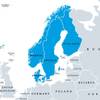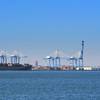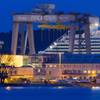According to RIA Novosti, Russian President Vladimir Putin signed a decree ordering the country's two largest tanker companies to be reorganized into a single corporation.
The objects of the merger are 100% state-owned Sovkomflot in St. Petersburg, the country's largest tanker company by capacity, and Novoship, the second largest, in which the government owns an 87.4% stake, in Novorossiisk on the Black Sea coast.
It will take nine months to complete the merger and hold an IPO. The new company will then become the fifth or possibly the third largest tanker operator in the world.
Putin recently met Sovkomflot CEO and former Transport Minister Sergei Frank and said this project was largely the idea of the ministry and Frank himself.
Frank proposed the merger seven years ago and continued to lobby for the project after resigning as transport minister and while he worked as an aide to Prime Minister Mikhail Fradkov. In 2004, he was appointed Sovkomflot director general and started working on the merger project.
The Russian shipping industry is not alone in consolidating. In 1999, Denmark's A.P. Moller Maersk Group took over Sealand Corporation, an American shipping company, to establish Maersk Sealand, the largest container company in the world.
Both Sovkomflot and Novoship were privatized in the early 1990s and started operating the most advanced vessels of that period. Both companies eventually established Russia's largest cargo fleets for transporting fuel and energy.
Although Russian vessels are on average almost 25 years old, the two companies operate vessels that were commissioned 5.5 and nine years ago, respectively. Sovkomflot and Novoship each own 56 vessels, mostly tankers, and their consolidated fleet will displace over 8 million metric tons. These figures will make the new company a strong rival to the global leaders.
In early June, both companies submitted a joint design for Arctic shuttle tankers intended to transport oil from the Prirazlomnoye deposit in the Barents Sea. The keel of the first shuttle tanker was laid a week later in an impressive setting at St. Petersburg's Admiralty Shipyard, one of the old Russian shipbuilding companies. It thus appears that Russia can minimize foreign involvement in developing its hydrocarbon deposits on the Arctic shelf.
Until now, Russian shipyards operated below capacity, because it was cheaper to order ships from foreign companies, which have the most advanced equipment and technologies. Novoship, for one, does not have a single Russian-made vessel.
Source: RIA Novosti
Featured videos

Inside the Electrified Truckable Tug

Inmarsat Enhances Service to Drive Digitalization

Tracking Foreign Vessels Working in the U.S. Jones Act Market
Subscribe for
Maritime Reporter E-News
Maritime Reporter E-News is the maritime industry's largest circulation and most authoritative ENews Service, delivered to your Email five times per week









